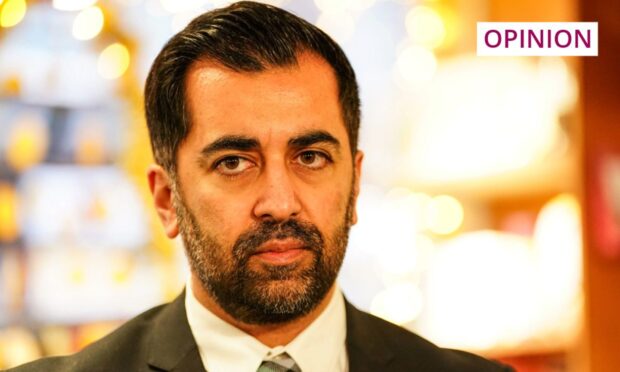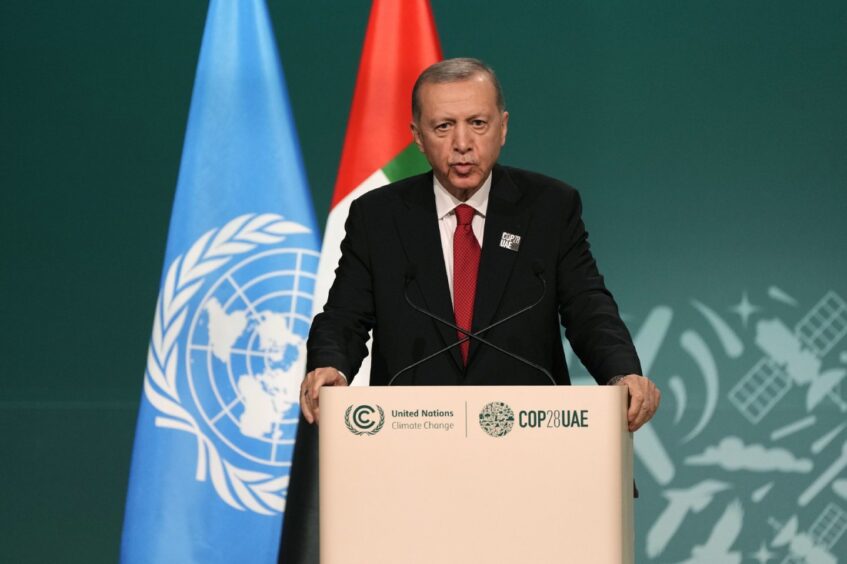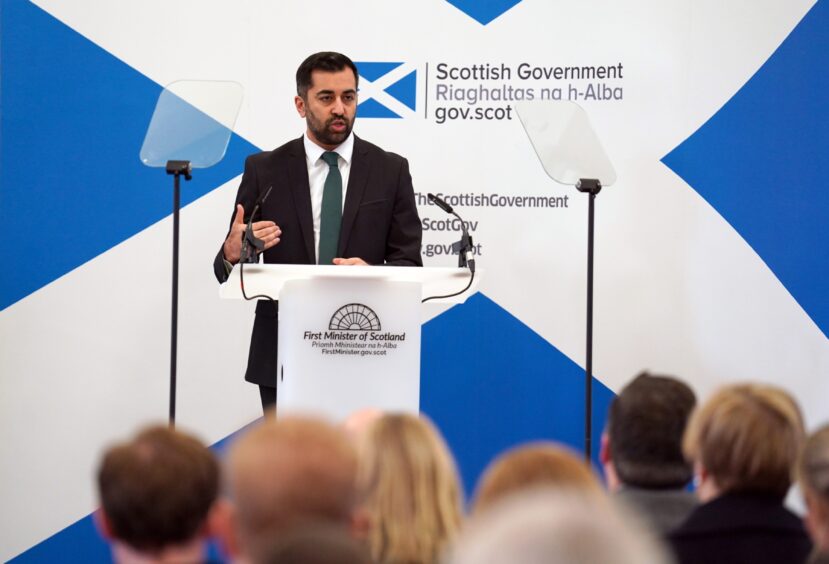There’s a song that sometimes rings out across football grounds that tells you a manager’s time is nearly up.
It’s when his own fans, infuriated by dreadful performances and bad decisions, begin chanting “you don’t know what you’re doing”.
For the guy in the dug-out there’s almost nothing more humiliating, and there is rarely any way back.
Poor Humza Yousaf is lucky that his job doesn’t require him to stand in front of thousands of disgruntled punters each week. If he did, he’d surely be wincing at the cacophony raining down upon him.
It’s getting harder to believe that the First Minister is up to it.
This is not a question of his taking decisions that I or anyone else might disagree with, but that are legitimate according to SNP ideology or its governing programme.
He’s simply making terrible choices. And with each mistake, Yousaf appears more
and more out of his depth.
I think he’s starting to know it, too.
It was there in his wide-eyed appearance in front of journalists last week concerning his ridiculous invite to Scotland of Turkish President Recep Tayyip Erdogan.
Erdogan was the Islamist mayor of Istanbul in the late 1990s when he was jailed for publicly reading a poem that included the lines: “The mosques are our barracks, the domes our helmets, the minarets our bayonets and the faithful our soldiers.”
As Turkey’s long-serving leader, he has pursued an autocratic crackdown on democratic opponents and unpicked the country’s secular state, while supporting Islamist causes.
Following a revolt against his reign in 2016, Erdogan’s forces arrested journalists, lawyers, academics and politicians who had acted against him.
He is, of course, an ally of Vladimir Putin.
Humza Yousaf should have avoided Erdogan like the plague
There are a number of reasons that Yousaf should have avoided Erdogan like the plague.
The Turk is hardly in good odour with Scotland’s European allies and his sectarian,
Sultanic behaviour doesn’t exactly square with the SNP’s professed ambition to pursue a civic, inclusive nationalism.
As a Muslim himself, the First Minister might have thought to tread especially carefully.
As ever, confronted with the consequences of his miscalculated invite, which took place at COP28 in December, Yousaf was unconvincing in his own defence.
“I said the next time he’s in the United Kingdom why not come up to Scotland,” said the
First Minister, as if he was talking about some visiting Hollywood celebrity.
He would, he insisted, raise human rights concerns, “but I should say of course we do that in a way that also recognises we’re on a human rights journey as are other
countries.”
We are indeed all on a human rights journey, but any comparison on this front is verging on offensive.
It was left to the SNP’s coalition partners the Scottish Greens to sensibly point out that the Turkish regime is responsible for ethnic cleansing of the Kurds, shutting down independent media, and other gross violations of human rights.
If we don’t necessarily expect our leaders to get everything right, we do at least expect them to show a comforting degree of moral heft and intellectual wisdom.
When it comes down to it, good judgement is the most important skill a politician
needs.
As the months of his first year in office have passed, there has been precious little evidence that Yousaf has these qualities.
Shortly before the Erdogan affair, he found himself entangled in an entirely avoidable kerfuffle over the ban on XL bully dogs.
The Scottish government’s initial resistance to following the lead of Westminster in introducing restrictions on the breed led to an influx of the dogs to Scotland.
It was only then, and amid public alarm, that Yousaf agreed to follow suit.
Was this due to the SNP’s long-standing and politically driven determination to do things differently to the UK parliament whenever possible?
If so, that was very stupid. Or was it down to a lack of policy sense? In its way, that would be even more worrying.
These are only two examples of Yousaf’s seeming inability to act decisively in the public interest and in ways that might burnish his weak credentials as a man capable of the top job.
Too often Humza has to explain why his decisions have not gone to plan
Too often, we seem to see him standing in front of the press pack at Holyrood attempting and largely failing to explain why decisions he has taken have not gone according to plan.
However you vote, today more than for many years we’re looking for our leaders to provide a sense of security and to convince us that they’re making the right choices for the right reasons.
Basic competence, too, has rarely felt more essential.
The upsets and turbulence of the past decade have left the electorate lacking faith in the quality and integrity of politicians.
That badly needs fixed, which requires the right kind of people in high office.
Yousaf was dealt a bad hand from the start, only narrowly winning the SNP leadership when he was expected to walk it, and then having to confront a party in disarray and a damaging police fraud investigation that has still to reach its conclusion.
But he has played that bad hand excruciatingly badly.
It is very hard to avoid the conclusion that he simply doesn’t know what he’s doing.
Chris Deerin is a leading journalist and commentator who heads independent, non-party think tank, Reform Scotland



Conversation